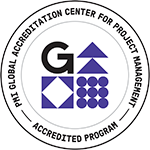About Accreditation
Institutional Accreditation
In the United States, schools and colleges voluntarily seek accreditation from nongovernmental bodies. Accreditation provides assurance to the public, in particular to prospective students, that an organization has been found to meet clearly stated requirements and criteria and that there are reasonable grounds for believing that it will continue to meet them.
Whether a college, university, or program is accredited is important to students with financial aid, employers who provide tuition assistance, donors, and the federal government.
- Students who want federal (and sometimes state) grants and loans need to attend a college, university, or program that is accredited.
- State governments require that a college, university, or program be accredited when they make state funds available to students or institutions and when they allow students to sit for state licensure examinations in some professional fields.
Who Are the Accreditors?
In the U.S., the institutional accreditors are private, nongovernmental organizations created for the specific purpose of reviewing higher education institutions and programs for quality. In most other countries, accreditation (or quality assurance) is carried out by government organizations.
The U.S. Department of Education (USDE) and the Council for Higher Education Accreditation (CHEA) independently evaluate the work of accrediting agencies, and officially recognize those who have been found to be reliable in their review of colleges and universities. The USDE focuses on accreditation as a requirement for distributing financial aid, while the CHEA focuses on accreditation as a way to measure academic quality. It’s important to understand that the USDE and CHEA do not accredit schools and programs themselves.
What Is Accredited?
Colleges, universities, and programs are accredited. In the U.S., colleges and universities are accredited by one of 19 recognized institutional accrediting organizations. Programs are accredited by one of approximately 60 recognized programmatic accrediting organizations.
The CHEA Database of Institutions and Programs Accredited by Recognized United States Accrediting Organizations contains information about over 8,200 institutions and over 44,000 programs in the U.S. Links to the Websites of these colleges and universities are also available.
Bellevue University is accredited by the Higher Learning Commission (HLC or the Commission).
Status: Accredited by the Higher Learning Commission
Contact Information: The Higher Learning Commission
230 South LaSalle Street, Suite 7-500
Chicago, Illinois 60604-1413
1.800.621.7440; 1.312.263.0456; FAX: 1.312.263.7462
Email: [email protected]
Specialized Accreditation
Programmatic, or specialized, accrediting agencies concentrate on programs, departments, and schools within larger universities. Institutions that receive accreditation from programmatic agencies generally also have institutional accreditation. While some programmatic agencies offer both programmatic and institutional accreditation, many institutes choose to pursue institutional accreditation from a regional agency.
Bellevue University programs are accredited by a number of specialized agencies:
The College of Business at Bellevue University has received specialized accreditation for its business programs through the International Accreditation Council for Business Education (IACBE) located at 11960 Quivira Road in Overland Park, Kansas, USA. For a list of accredited programs please view our IACBE member status page.
IACBE Public Disclosure of Student Achievement
Status: In good standing.

Bellevue University’s Bachelor of Science in Project Management, Master of Project Management (MPM) and Master of Management in Information Systems (MS-MIS) - concentration in Information Technology Project Management are accredited by the Global Accreditation Center for Project Management Education Programs. The Global Accreditation Center for Project Management Education Programs (GAC) is the world’s leading specialized accrediting body for project management and related degree programs, accrediting programs at the bachelor’s, postgraduate, and doctorate levels offered within accredited institutions of higher education worldwide.
Status: In good standing.

The Master of Science in Clinical Mental Health Counseling program is accredited though the Council for Accreditation of Counseling and Related Educational Programs (CACREP). The standards of CACREP are considered to be markers of high quality counselor education. CACREP accreditation provides recognition that the content and quality of the program has been evaluated and meets standards set by the profession.
Status: In good standing.

The baccalaureate degree program in nursing at Bellevue University is accredited by the Commission on Collegiate Nursing Education, 655 K Street, NW, Suite 750, Washington, DC 20001, 202-887-6791.
Status: In good standing.

Bellevue University also meets all Better Business Bureau membership standards for BBBOnLine Reliability participation.

BBBOnLine, Inc.
4200 Wilson Boulevard, 8th Floor
Arlington, VA 22203 USA
Frequently Asked Questions
Yes. Bellevue University is fully accredited by the Higher Learning Commission, an independent accreditation institution founded in 1895. Bellevue University has held its accreditation since 1977. Additionally, Bellevue University holds specialized accreditations for several specific programs. To learn more about all of Bellevue University's accreditations, please go here.
If you are considering transferring to Bellevue University, use our simple credit transfer search system as a guide. You will be able to see how classes at your current or former school may transfer.
Schools generally accept transfer credits from schools with similar types of accreditation but each institution determines its own policies and procedures for accepting transfer credits. You should check with the accepting institution.
The U.S. Department of Education offers a free tool that allows you to search for institutional accreditation.
The Department of Education does not rank colleges and universities. The Department’s College Affordability and Transparency Center provides a number of resources to help you make an informed decision.
If you are preparing for a career that requires licensure, you should inquire with the appropriate state or licensing agency to determine if specialized accreditation of their program or degree is required.
Questions regarding licensure should be directed to the agency or state that would be granting a professional license.
You can call the U.S. Department of Education at 1.202.219.7011 to check on the legitimacy of any institution or accrediting agency.









